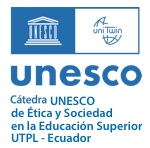¿La fe ha matado a la razón? Un planteo desde la teología reformada
Resumen
El presente estudio tiene como objeto las contribuciones de la teología cristiana reformada para la superación de la (aparente) dualidad entre fe y razón. Esta investigación se funda en estudios acerca del diálogo entre la tradición cristiana reformada y la filosofía cristiana medieval y moderna con el objetivo de proponer respuestas teóricamente viables para las problemáticas posmodernas, o hipermodernas, como el vínculo entre las manifestaciones religiosas del ser humano y sus capacidades racionales.
Descargas
Referencias
Dooyeweerd, Herman (1984). A New Critique of Theoretical Thought. Ontario: Paideia Press.
Dooyeweerd, Herman (1980). In the Twilight of Western Thought: Studies in the Pretended Autonomy of Philosophical Thought. Nutley: The Craig Press.
Frame, John (1994). Apologetics to the Glory of God: An Introduction. Phillipsburg, NJ: P&R Publishing.
Frame, John (1987). The Doctrine of the Knowledge of God. Phillipsburg, NJ: P&R Publishing.
Finnis, John (1980). Natural Law and Natural Rights. Oxford: Oxford University Press.
George, Robert P. (1992). Natural Law Theory. Contemporary Essays. Oxford: Oxford University Press.
Heschel, Abraham J. (1966). Who Is Man? Palo Alto, CA: Stanford University Press.
Hiebert, Paul G. (2008). Transforming Worldviews: An Anthropological Understanding of How People Change. Grand Rapids, MI: Baker Academic.
Leithart, Peter (2000). A House for My Name. Moscow, ID: Canon Press.
MacIntyre, Alasdair (2007). After Virtue: A Study in Moral Theory. 3rd ed. Notre Dame, IN: University of Notre Dame Press.
Plantinga, Alvin (2015). Knowledge and Christian Belief. Grand Rapids, MI: William B. Eerdmans Publishing Co.
Schaeffer, Francis A. (2014). Escape from Reason. Downers Grove, IL: InterVarsity Press.
Van Til, Cornelius (1961). Christian Theory of Knowledge. Phillipsburg, NJ: P&R Publishing.
Derechos de autor 2021 ©️ Analysis

Esta obra está bajo licencia internacional Creative Commons Reconocimiento-NoComercial-SinObrasDerivadas 4.0.








